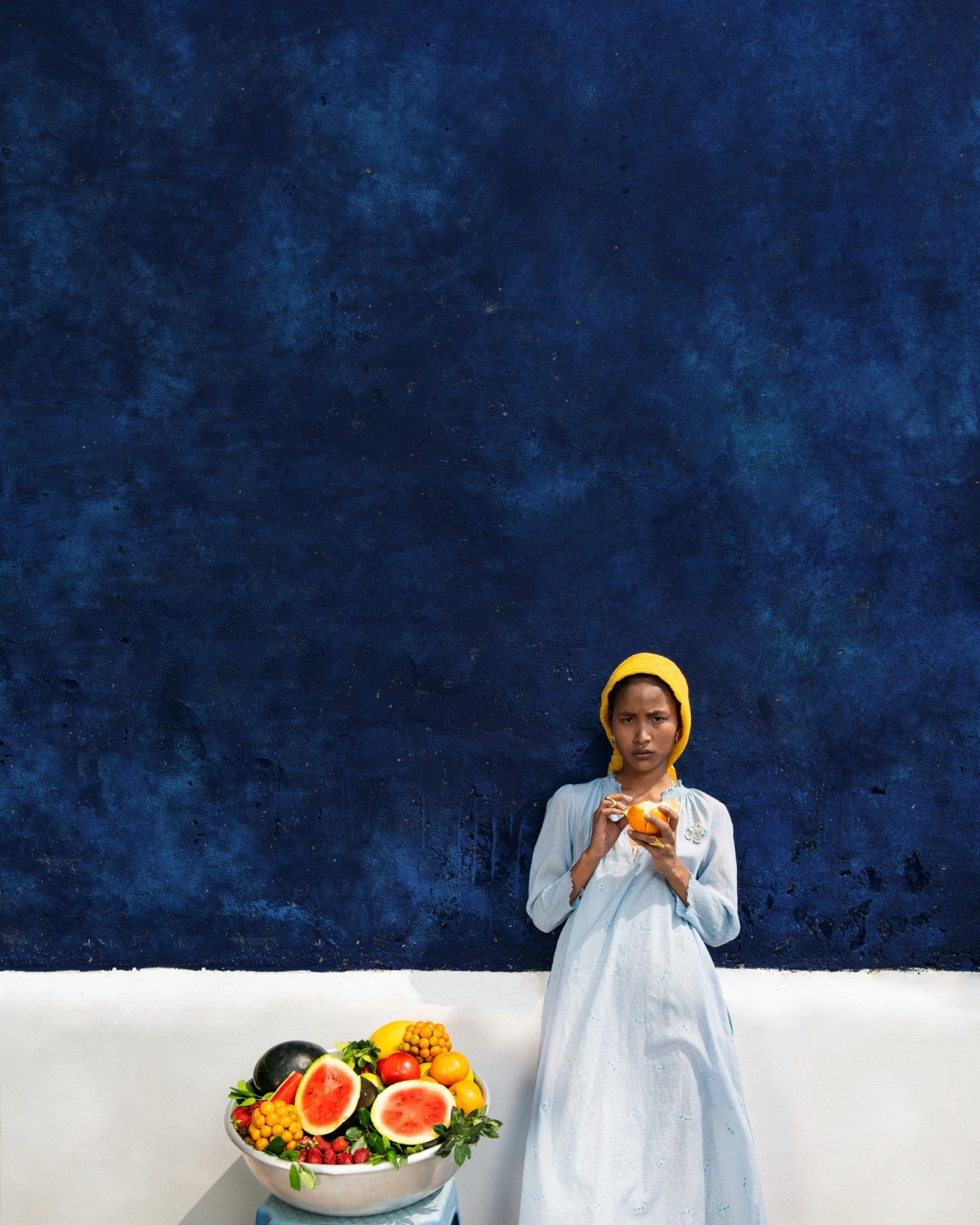A Decade of Stories Across Geographies
By Sandra Alexander
In a conversation with Jaya Bhatt and Ruchi Tripathi
Stories make a garment. They collect around its pleats, circle around the buttons and walk along the hem, as the hands that weave them set to work. A garment goes through many hands and homes before it reaches its owner, collecting tales from across geographies along the way. Indigene is a tribute to storytellers, a community of artisans across geographies who build stories on fabric through their hands.
Led by designers Jaya Bhatt and Ruchi Tripathi, Indigene is a patchwork of tales sewn together and dipped in the dyes of their details, washed and dried in the sun. Jaya and Ruchi have always imagined Indigene as a community effort. This year, as they complete a decade of their journey as a conscious clothing label, we look at their story, how they started and how they keep the circle of sustainability going.
Over a zoom call on a mid-April afternoon, Jaya talks about how the journey has been so far. "It has been a very enriching experience because there's a lot of community work that you learn. You learn that everybody is a shareholder in your ideas and what comes out of it." The minutiae of Indigene's planning process involves how the artisans will create the garment. "You have to think of whether the women can make it, will you have to train them in something extra to do it, and how are you going to interpret your ideas for them to understand and put it out on the textile that you're working on. It's a collective effort."
The founders have known each other since their days at design school in Delhi. As part of their course and following it, they traveled to the interiors of the country, working with multiple communities and learning crafts that they had only read or studied about until then. After several years of working on these projects, owing to their shared love for handmade clothing and textiles, they knew they had to start something of their own. It was envisioned to be a mix of the places they had visited, the crafts they had come across, and the people who worked on them. And so was born Indigene, a label that focuses on the nuances of production and visualises products with multiple techniques on them.
For Indigene, its artisans are its family. Deep care is taken in strengthening the relationship built with them over the past decade. Ruchi mentions, "Our work is more about us going to them. It's about us visiting the clusters or our women's groups and sitting amongst them in their own comfortable space and creating something together. It's more about them accepting us rather than us giving them work." The bond they share is much more personal as they inevitably become part of the community's good times and bad. Working with communities in their regions makes the designers sensitive to their environment. It helps them create better while designing and conceptualizing because the story is much more deep-rooted than just the design.
Sustainability is at the core of Indigene's design philosophy. Providing a sustainable livelihood to communities they started with is crucial to the process. "We consciously believe in continuing work in a cycle. It is challenging because every time you have to think of innovating within the circle", says Jaya, while agreeing that it is the most fulfilling part of her work.
Effort is also taken to reduce wastage at work. Scraps are reused to create tassels and trims or are patched together to form a garment. They also plug in hand block prints from past collections into recent ones in new combinations. "It is quite a painstaking process to make the hand blocks, so we try to use them multiple times. If it's used in a certain manner in one collection, we bring it back by interpreting and applying it differently, because it's important to not have a limited life for design."
But in the end, the conversation comes to this - sustainability is a broad spectrum, and the definition will not be the same for everybody. Jaya explains, "You can only be this sustainable or that sustainable. To be completely able to cover the sustainability dialogue is too much to ask. And that's why we try to call ourselves conscious rather than sustainable because you're claiming too much."
Indigene's design language is a mix of various elements. It includes hand block prints from Kutch and parts of Rajasthan and various interpretations of Ajrakh across collections. They also work with woven cotton and silks from Bengal, used mostly as the base fabric. A women's group in Delhi handles the embroidery.
Their latest collection, Buttercup Gold, is a treasure trove of floral motifs. Intricately crocheted flowers and leaves are bound together in bouquet placements, or are spread across the hemline or sprinkled across the entire garment. Across the collection, garments in cotton voiles and khadis come in layers and can be worn in multiple ways as the wearer finds ideal.
For young millennials who want to lead a sustainable lifestyle but find it increasingly expensive to do so, Ruchi has some advice. The foremost step is to avoid high fashion brands known for their terrible working conditions. The next is to "look at local brands, whether it is clothing, food or grains. Try to source locally as much as you can." The concept of trans seasonal clothing which focuses on not bifurcating clothes based on seasons is gaining popularity among designers and seems like a great option for buyers as well. "It makes sense because you're also telling people to buy less but be mindful of what you're buying."
For the two of them as individuals, the sustainability dialogue that they began at work extends into their daily practices. Be it composting or minimising plastics, Jaya and Ruchi find ways to be mindful of their consumption. Both love to grow their food and are keen gardeners. "Winters in Delhi are best for that", says Jaya, while adding that they also take special care to "pass on our clothes to sisters and cousins who, luckily, are happy to take the hand-me-downs and rotate it in the family,”
For the founders of Indigene, completing a decade is only a milestone in what they say is a much longer journey. Surrounded by a community that supports them, they aim to work and go forward together in the coming years. "We've seen the artisans' families grow. Their kids have grown up in the past ten years" says Jaya as Ruchi adds that they're "all growing old together" and both break into a laugh. Pushing boundaries one garment at a time, Indigene celebrates a decade of stories across geographies.






